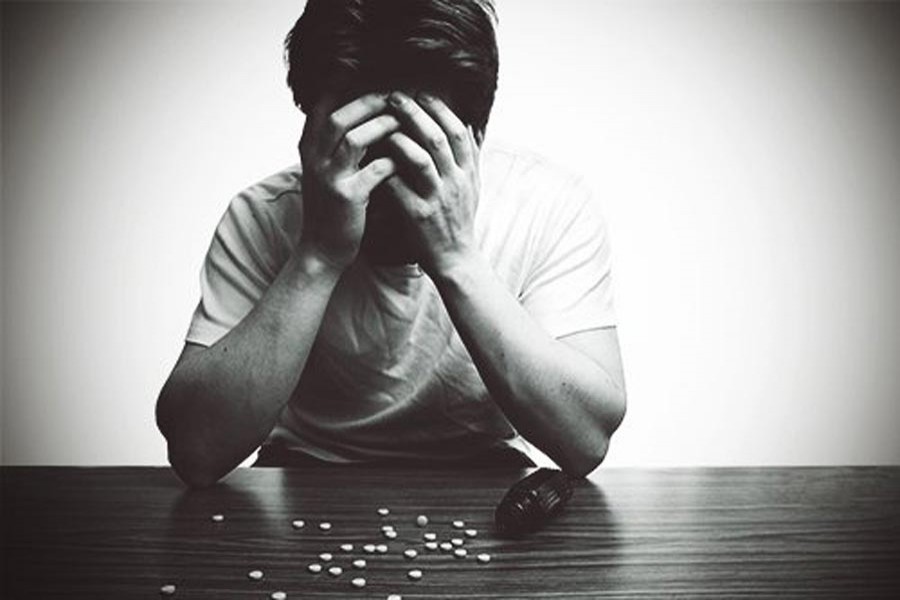Addiction and crime stay like cosy chums huddled together. Not all addictions, however, show the symptom of criminality initially. It is like a trap into which one steps never to turn back. The situation becomes compulsive at certain point when committing crime becomes the last option.
How do people then indulge in addiction? It depends on people, time and circumstances. Sometimes it is the company one keeps that drags one into use of substances or obsession for something else. At other times, just curiosity gets the better of reasoning and one gives into a bad habit. But then there are cases where a person is overwhelmed by frustration -which may be a consequence of a crisis in life or sustained pressures from people around or stress on account of many failures - to the point where that person wants to forget the burning sensation in the soul.
Jilted love has been one of the causes of extreme frustration and the most outstanding specimen of this has been created by Sarat Chandra Chattopadhya in his seminal novel Devdas. Today, though, liqueur is no longer considered a hard enough agent for blissful forgetfulness. People then fell for strong substances such as cannabis, marijuana, heroin, cocaine. Most of these illegal drugs are highly costly.
So in poorer countries like Bangladesh, their cheaper and advanced versions made their entry. Phensedyl coming from a neighbouring country once swept this land and then appears on the clandestine stage yaba -the reigning monarch of all drugs. Myanmar has used its army to drive away the Rohingya people to Bangladesh to the consequence of the host country's economic haemorrhage and environmental disaster for a wide swathe. But even this grievous injury will pale before the ubiquitous infiltration of yaba produced in that rogue country.
Frequent hauls of this drug in large quantities are an indication of the threat the drug poses to the nation. What is particularly alarming is the spread of addiction of this tablet in all corners of the country. So prevalent is the drug taking that even teenagers in villages have become slave to its sway. If the trend continues, the country will soon turn into a dungeon of wasteful youth and life.
Why does the young generation then fall victim to this pernicious habit? Are the youth frustrated or the lure of something apparently charming leads them on course of self annihilation? Sure enough, the country is doing fine on economic, health and some other fronts. People today are richer on an average than their forefathers but still something is going terribly wrong for them. They are not becoming responsible citizens and least of all when taking care of their children.
This sounds contradictory but it is not. Quite reasonably one can see that people are no longer satisfied with the minimum. They are after wealth accumulation to the neglect of the best of resources -the young generation. In fact the elders and more precisely the policymakers of the country fail to understand the need of their children. In the name of education the adults are doing injustice to the young ones. In cities and towns the problem is marked by myopic appreciation of child psychology and in villages total lack of supervision is responsible for a large number of teenagers and youth turning to drugs to overcome their frustration. In fact, they have nothing better to do.
Even grown-up people who head families are not immune from the bane. A consumer society fuels demands for material comforts and not all can keep up with the pace. Many fail and in cities and towns, families break up with the fatal consequences like the ones where father kills his sons. In villages the march of consumerism is not as strong as it is in cities but poverty at times is so cruel that frustration compels people to take their own lives. Those who cannot annihilate themselves like this take to drinking or inhaling drugs and slowly but surely proceed towards ruination of body and soul.


